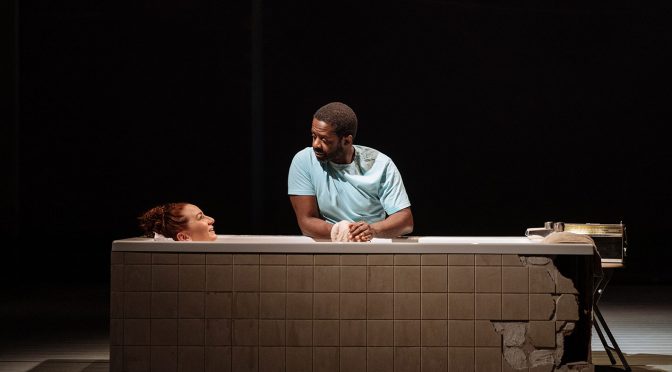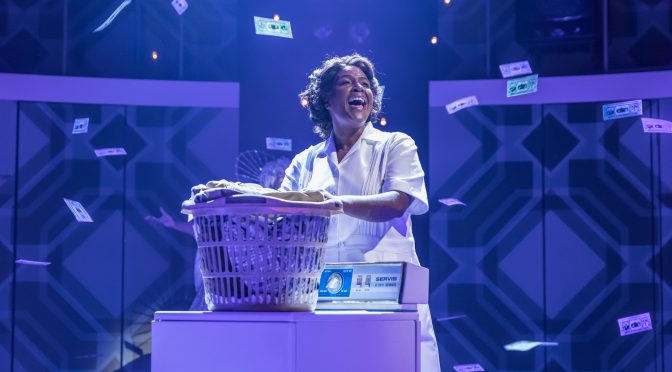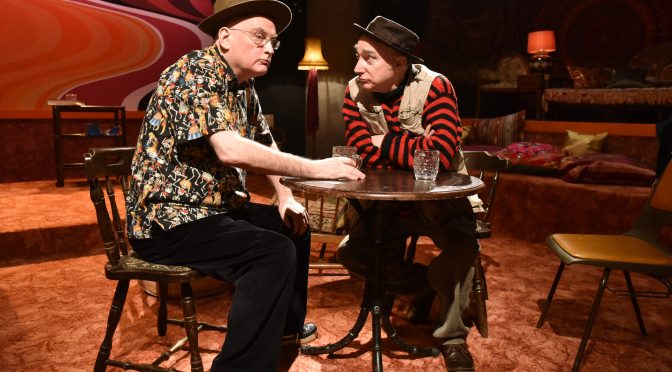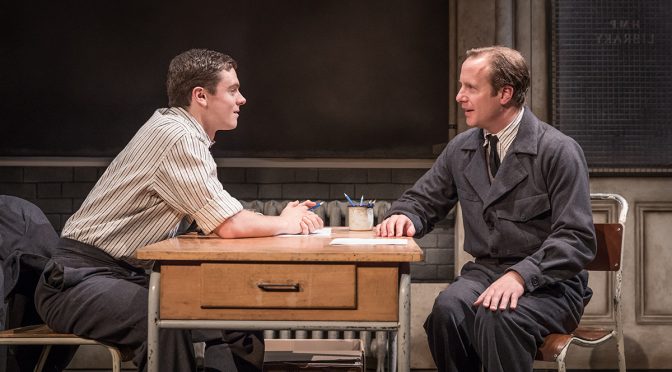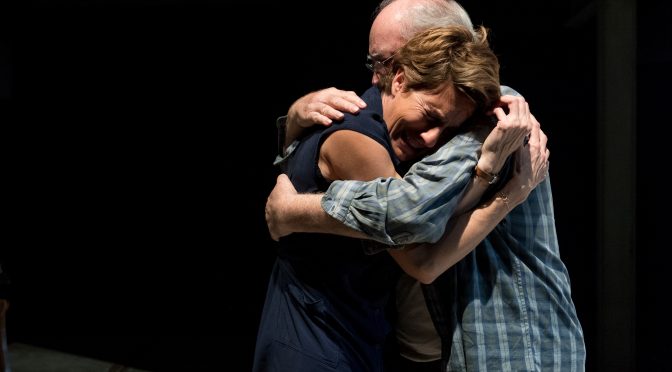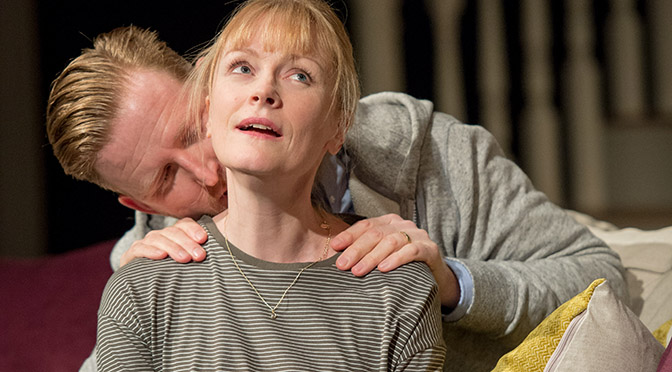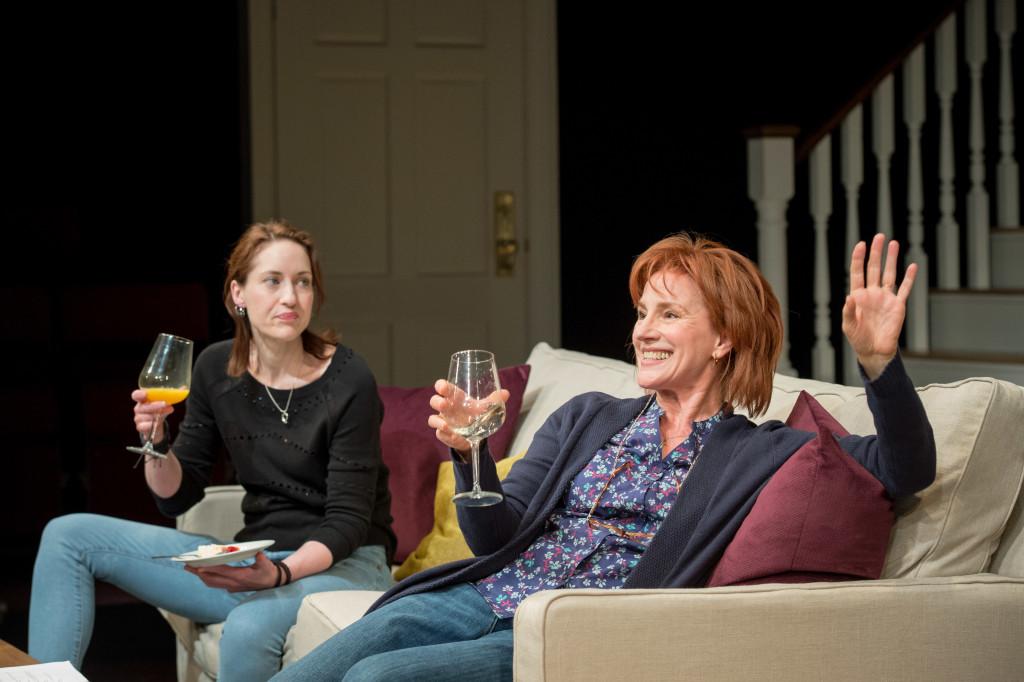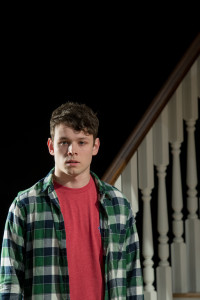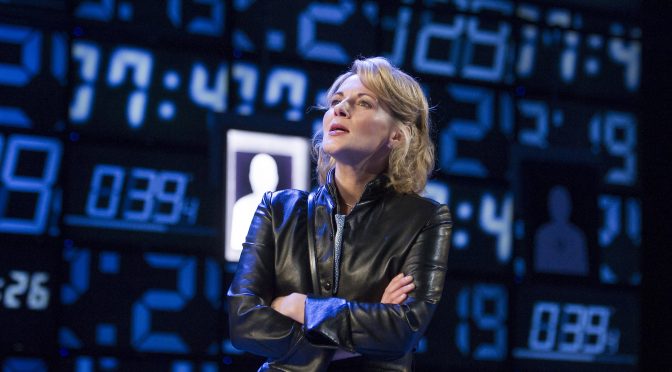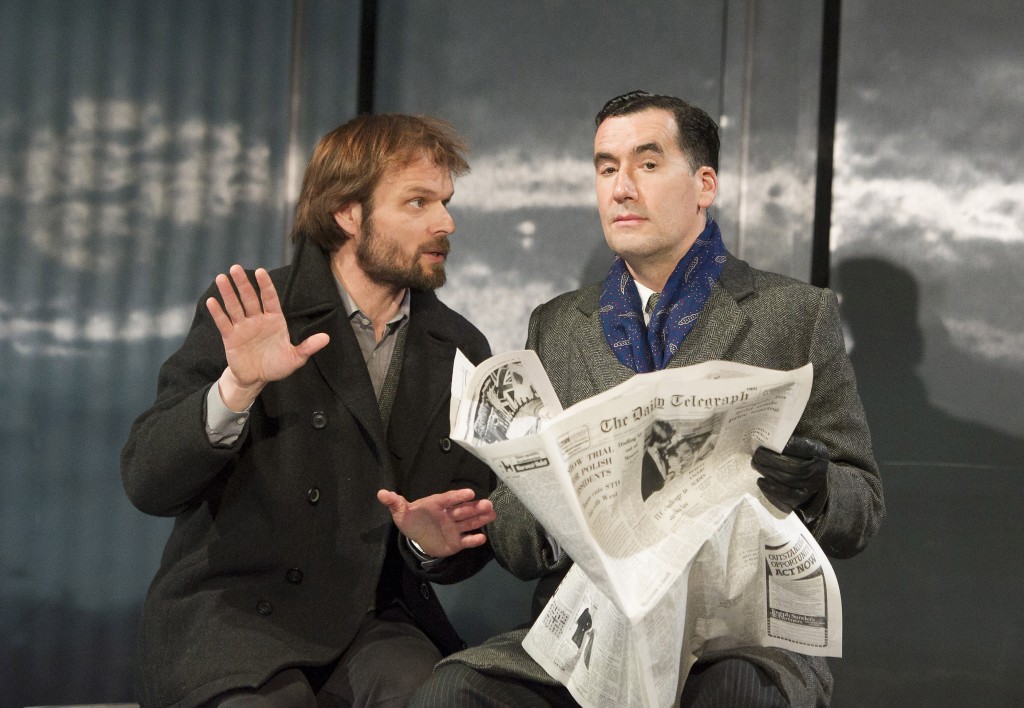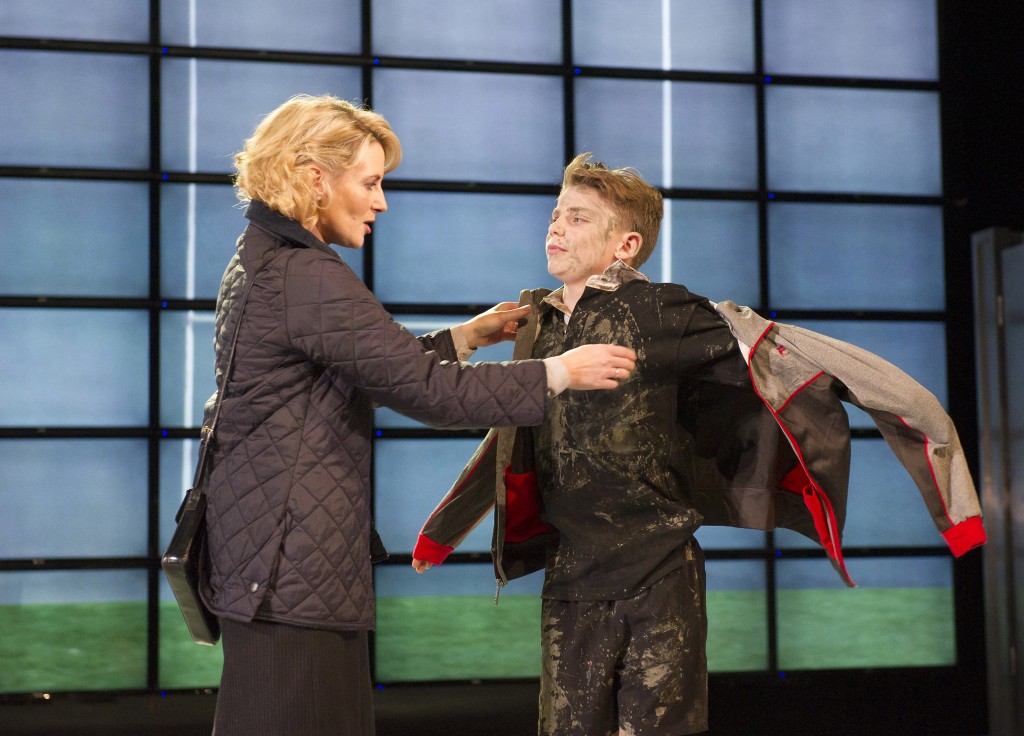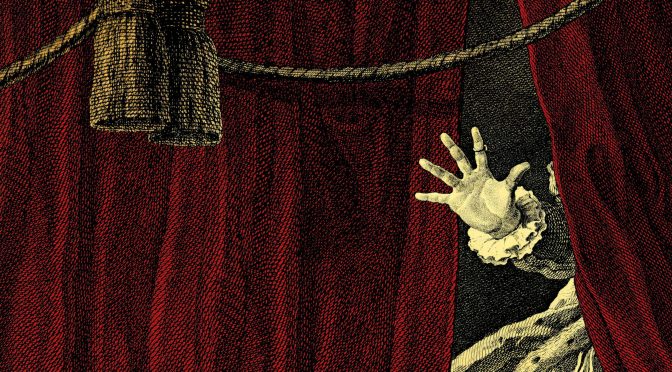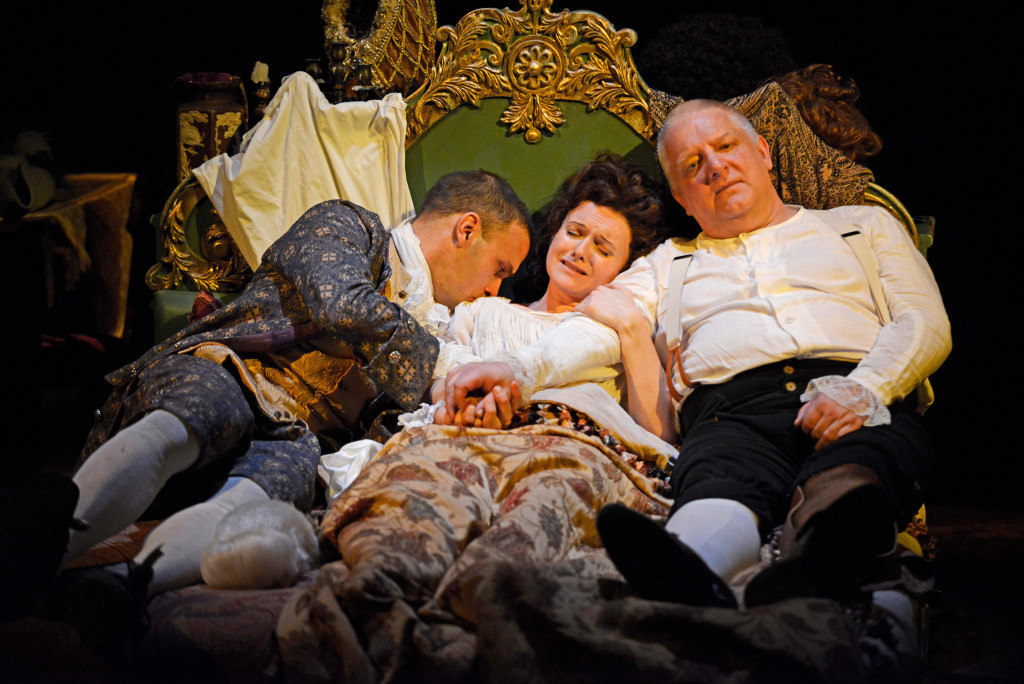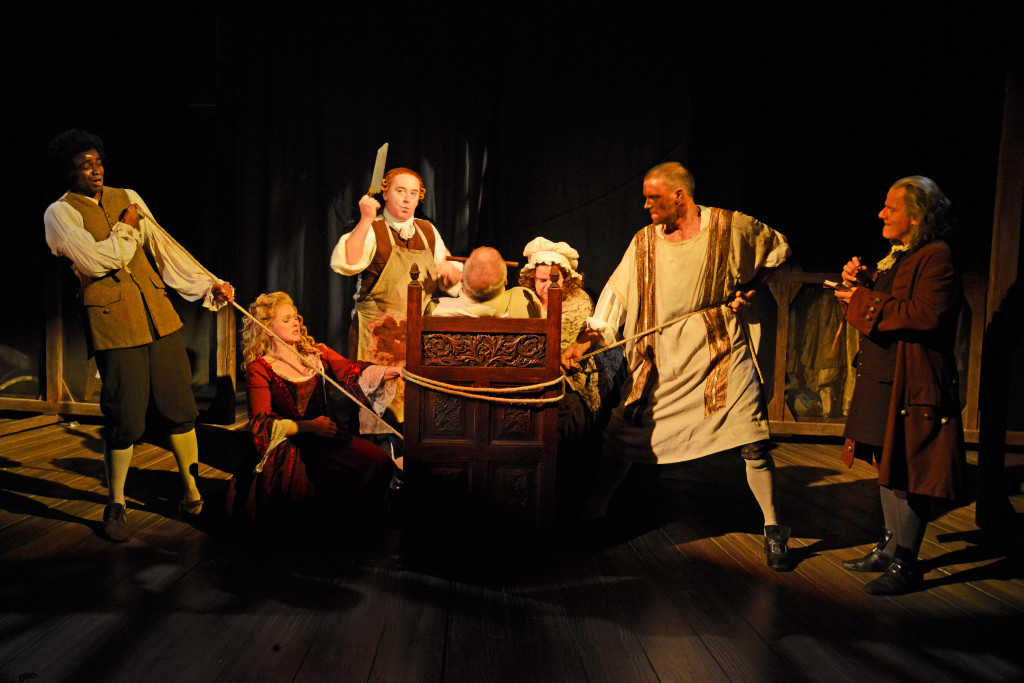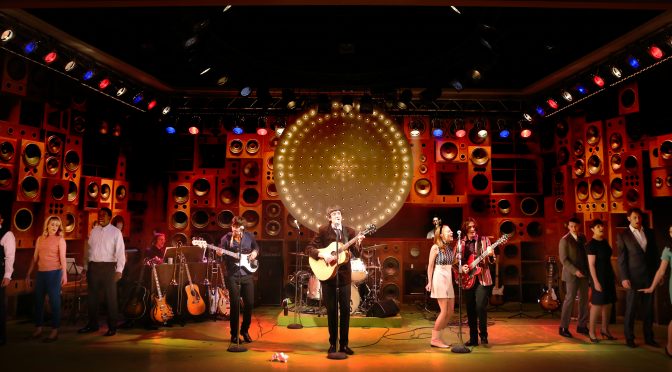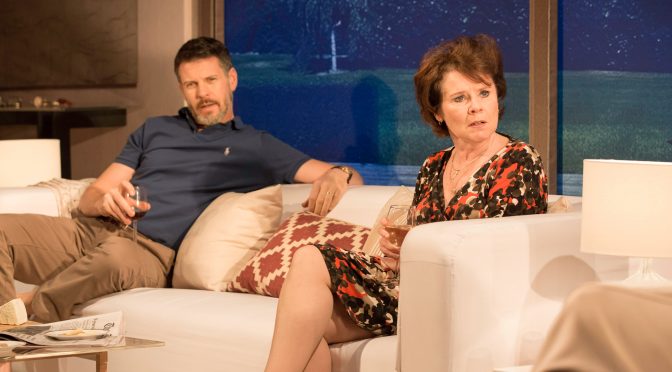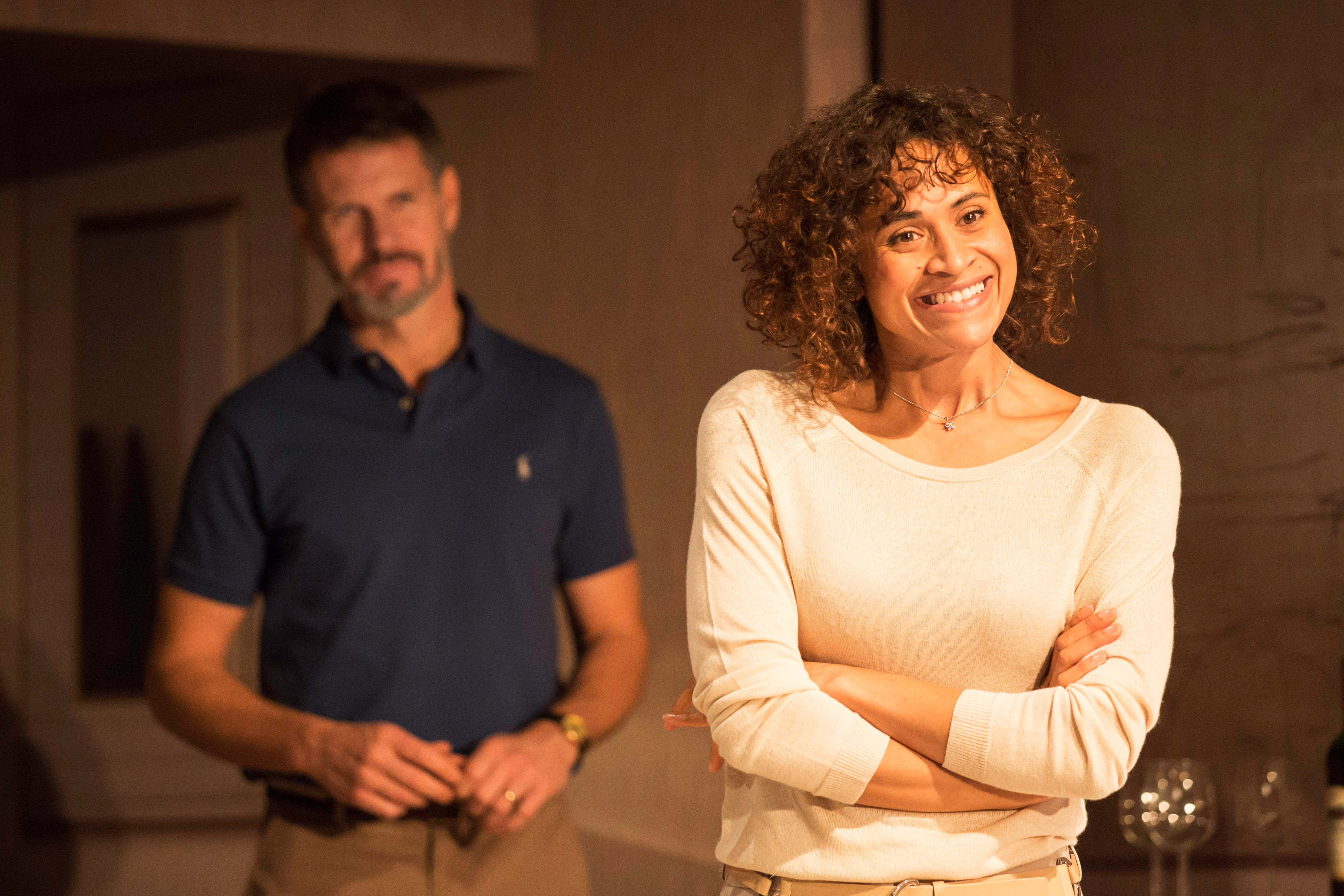Edward Hall’s venue has a strong reputation for bringing American plays to our shore. Taking directorial charge of this one is clever move, as is getting Martyna Majok’s play over here so quickly – it only won the Pulitzer Prize for Drama last year – because the piece hits the jackpot. It’s the kind of play you really want to win big.
As a story focusing on people with disabilities, Cost of Living answers an urgent need for diversity and representation on the stage. Nobody should knock that, but Hall also knows a fundamentally strong play when he sees one. Following John and Ani, who both need constant care, it is true that some issues raised about the health system and class are more relevant to an American audience… one hopes. But this is a play so full of life, of pain and of love, that it is impossible not to get caught up in.
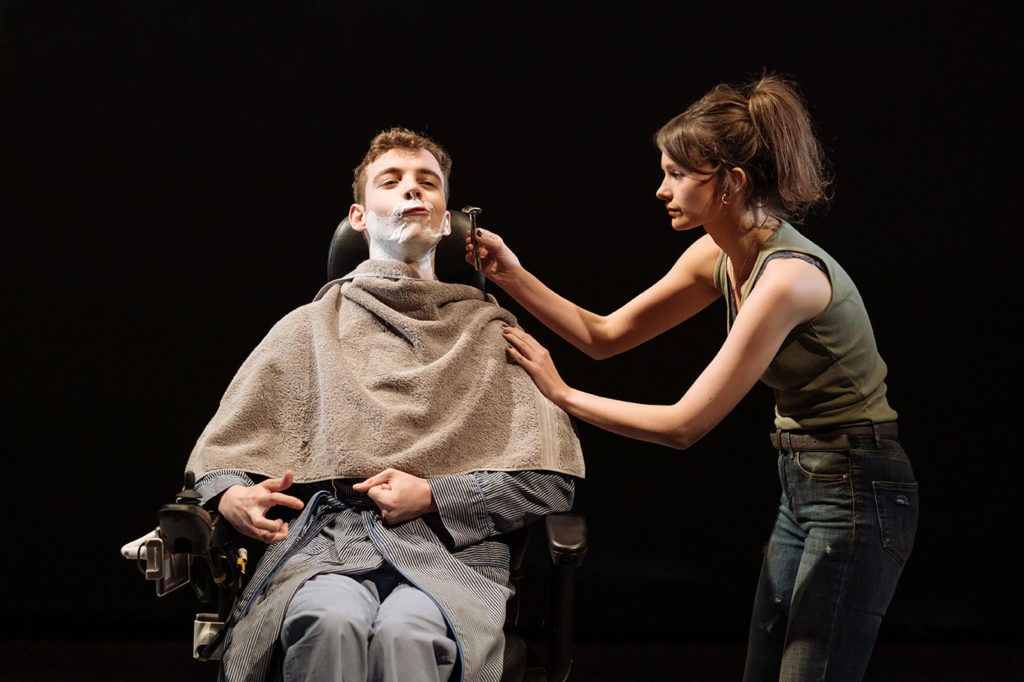
First taking John, a wealthy grad student, performed superbly by Jack Hunter, and his carer Jess, their scenes are full of wit and tension with the non-disabled Jess as the focus. Her poverty and personality are conveyed with great skill by Emily Barber, who clearly appreciates how Majok is guiding the audience.
An even more complex relationship is that between Eddie (Adrian Lester) and his ex-wife Ani, who was injured in a car crash. The story of her death prologues the play, with a moving meditation on grief that could stand alone as a brilliant monologue. The balance between “glum” events and the play’s humour shows Majok’s skills further. The dialogue throughout is stunning in its naturalism. For a conclusion, both Lester and Barber excel again as the hope that the play never ceases to include is allowed as a final note.
The central scene, which I’d put money on as being the germ of the piece, is something else. Ani (played marvellously by Katy Sullivan) is being bathed by Eddie. Starting with an intense intimacy, this is a sex scene the likes of which you’ve probably never witnessed before on stage. The tenderness is moving, the atmosphere electric and the insight profound. To embody her theme that the smallest mistakes can change – and end – lives, Majok then produces a shocker. Truly, I’ve never heard such gasps from an audience. An unforgettable moment of theatre is what gets you awards, and it makes Cost of Living a priceless play.
Until 9 March 2019
Photo by Manuel Harlan

